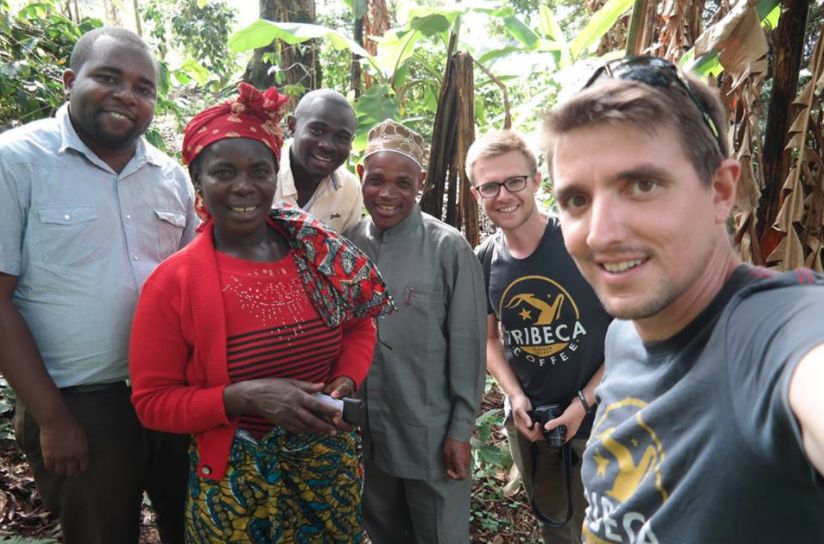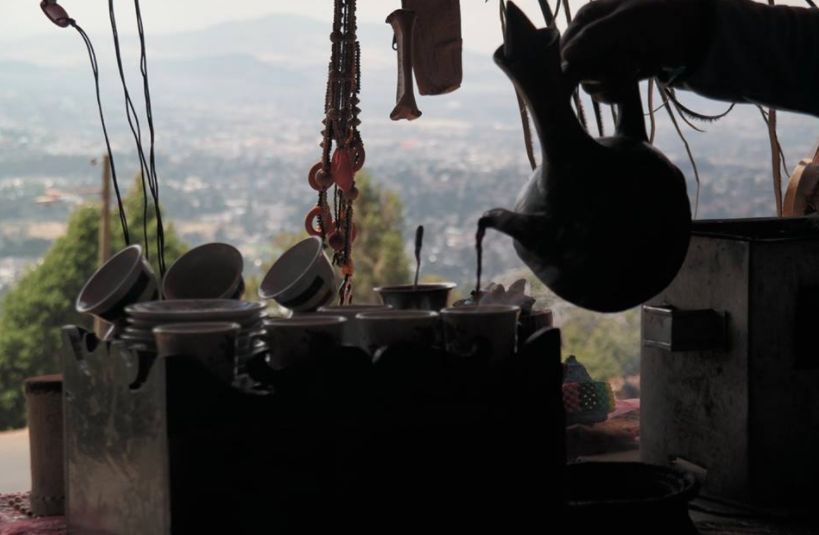Have you ever dreamed of visiting a coffee farm or washing station? Does direct trade of coffee interest you? Are you a coffee professional looking to educate themselves about the supply chain? Matt Carter, gives some insight into how to make the most of the experience.
Top ten tips for your first origin trip.
Words and Photos By Matt Carter
I have had the opportunity to travel to coffee farms for the last seven years, in Africa and a bit of South America. In this time, I’ve picked up a few tips and tricks to get the most out of my time on a farm. These work well for me; your experience will probably be different, so take what works for you and let me know what your tips and tricks are:
1. Be open to learning – As soon as you say, “I know”, you close yourself up to learning anything new. Farmers are simple, but they are far from stupid and you will learn a lot if you are open and willing.
2. Do some research – Given what I just said above in point 1, this may sound like a contradiction, but it’s not: know the basics about where you are going. By doing a bit of research, you can streamline your questions. If you are asking basic questions that you could have easily found out on the internet, then you waste time where you could instead be learning about important things.
3. Take a note book – I was lucky enough to get a note book specifically designed for visiting coffee farms which really helps me ask the right questions and record them. You also tend to get a bit overwhelmed with everything that is going on and you will likely forget a lot, so having the opportunity to write it down really helps.
4. Manage your expectations – if this is your first time going to a coffee farm then you will have a lot of preconceived ideas about what you are about to experience. Some of them will be true, but a few won’t be. You are dealing with farmers and generally they view their product as an agricultural cash crop product. We tend to go in with the lens of roasters and baristas; you need to take that lens off temporarily and understand it through the lens of a farmer where quantity often beats quality. It’s a good idea to check your ego at the door and remember that you probably aren’t a coffee farmer and the person who you are visiting is. Enter with the purpose of first understanding and then much later, to be understood. After two years of relationship building we are now able to ask a few farmers who we work with to try some experiments with us.
5. Farmers are business people not charity cases – It frustrates me when people visit farmers and want to treat them like charity cases. Most of the farmers that I have worked with are very proud of their work and what they do. By going in and not treating them with the respect and dignity they deserve you cause more harm than good. If you want to assist a farmer, view him/her as a business partner where you empower the farmer rather than humiliate them.
6. Take your camera but keep your eyes open – Most of the coffee farms that we get to visit are situated in the most spectacular places. The views and of course the beautiful coffee trees are wonderful to see. You need to be careful though that you don’t get lost behind a lens. It is so important to be present and absorb your experience with all your senses. I love to grab a handful of soil, feel it and smell it, take a cherry from the tree and eat it and taste it, look closely at everything, listen to the birds and the stories that the farmers tell that way you can truly say that you have been on a coffee farm.
7. Get ready to walk and get dirty – These farms are often situated on the slopes of steep mountains and it often rains in these areas creating a lot of slippery mud. Slipping and sliding is all a good part of the fun and getting dirty is part of the experience. Make sure that you dress appropriately.
8. Eat like a local – Fresh, cheap, seasonal food is so delicious! I make a habit of going to the local market and having a walk around. I feel like it gives me a quick snap shot into the lives of the people who live there and in turn the lives of the farmers. I will buy a snack or some street food and then go to restaurants where all the locals go, look around and see what people are ordering and try copy that. It doesn’t always work and sometimes you end up eating some strange unpleasant things, however for the most part you win and you have wonderful experiences.
9. Take a gift for the farmer you are visiting – It doesn’t need to be elaborate, something that says, “Thank you for your time.” This doesn’t include a packet of coffee that you roasted for them, but it can include a branded t-shirt, cap, or something else that you know the farmer might appreciate.
10. Be prepared to receive a gift from the farmer you are visiting – Some farmers will be appreciative of your visit and feel the need to express this by giving you a gift. For me this has included a live chicken, a beer, coffee beans, bananas or other fruit hampers etc… you get the idea. The first time it happened I was a bit embarrassed but it was explained to me that it is the farmers way to show that they respect and appreciate us as well. From then on, I have willingly accepted gifts when offered.
These are just my top 10 tips, you will need to get out there and learn a few of your own lessons as well. There are so many benefits to visiting farmers and developing relationships and I highly encourage it. I believe that done correctly it can add a lot of value to the supply chain.

